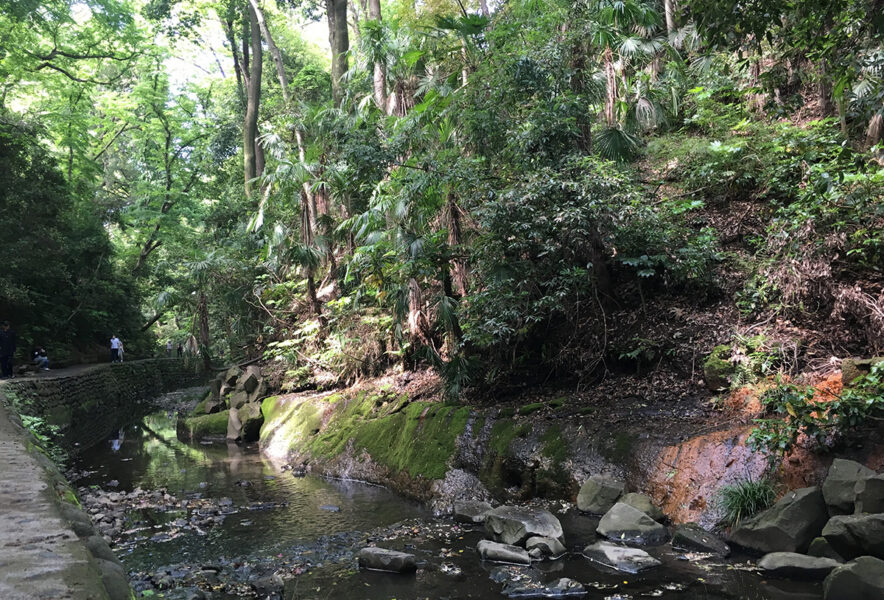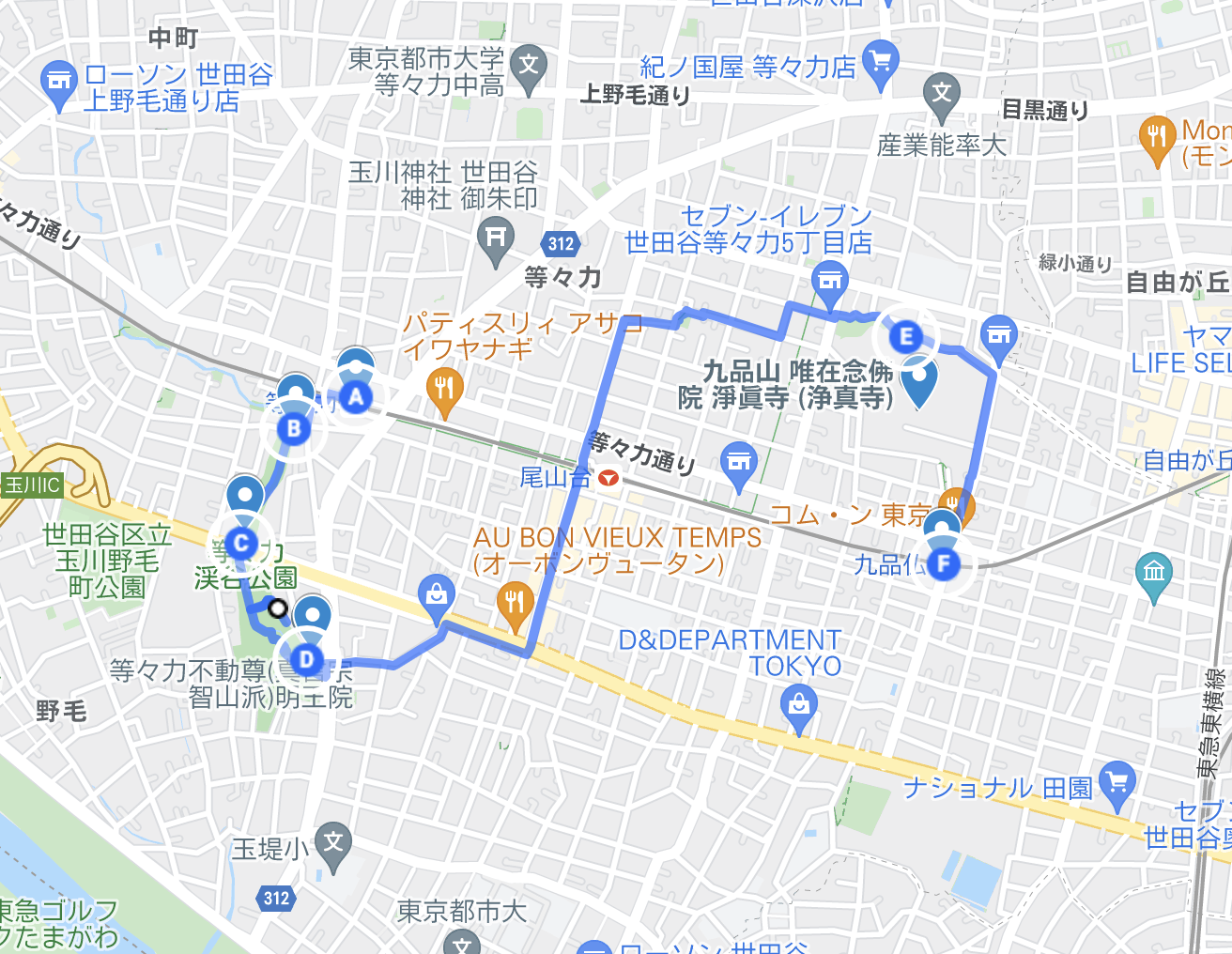Today’s stroll Todoroki Valley and Kuhonbutsu
We will take a stroll through two areas connected by the Tokyu Oimachi Line.The Todoroki Valley, the only valley in Tokyo’s 23 wards that can be called an urban oasis, and Kuhonzan Josinji Temple, a temple with dense greenery that was founded in 1678 by the monk Kaishu in the ruins of Okusawa Castle.
- Today’s route in Todoroki
- A.Tokyu Oimachi Line Todoroki station
- B.Entrance to Todoroki valley Park
- C.Todoroki Valley
- D.Fudo Waterfall and Todoroki Fudo
- E.Japanese Garden and Shoin
- F.Kuhombutsu Joshin-ji Temple
- G.(Goal)Kuhonbutsu Station
- Review of the Todoroki route
- Access to Todoroki
- Parking around Todoroki Valley and Kuhonbutsu
- Todoroki Valley and Kuhonbutsu Official Website
- Recommended around Todoroki Valley and Kuhonbutsu
Today’s route in Todoroki
A.(Start)Tokyu Oimachi Line Todoroki station
B.Entrance to Todoroki valley Park
C.Todoroki Valley
D.Fudo Waterfall and Todoroki Fudo
E.Japanese Garden and Shoin
F.Kuhombutsu Joshin-ji Temple
G.(Goal)Kuhonbutsu Station
A.Tokyu Oimachi Line Todoroki station
Todoroki Station on the Tokyu Oimachi Line is conveniently located about 20 minutes from Shibuya Station, either via Jiyugaoka Station or via Futakotamagawa Station. Today’s start is at the south exit of Todoroki Station.
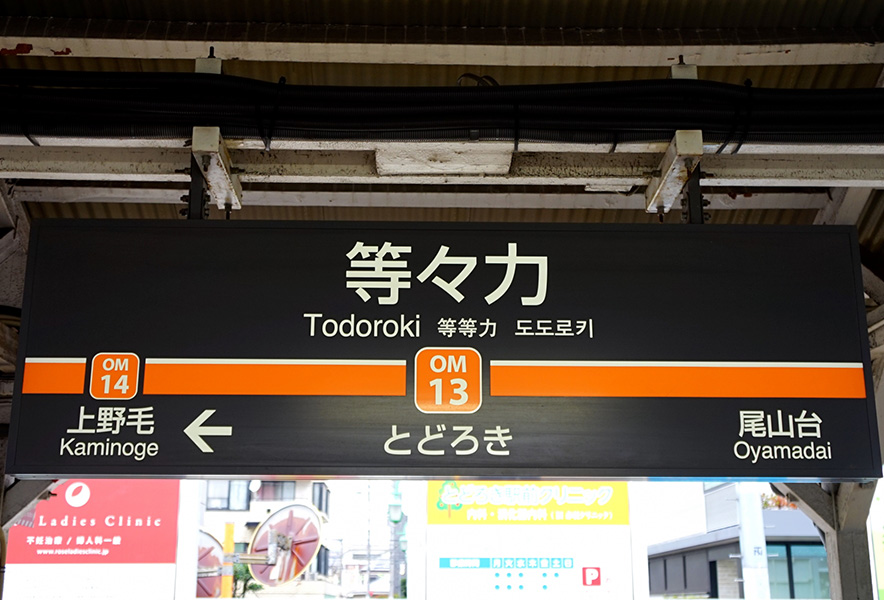
B.Entrance to Todoroki valley Park
From the station, follow the signs for directions and walk along the shopping street for about five minutes until you reach the entrance to Todoroki Valley Park.
As you descend the stairs, you will find yourself in the urban oasis of Todoroki Valley.
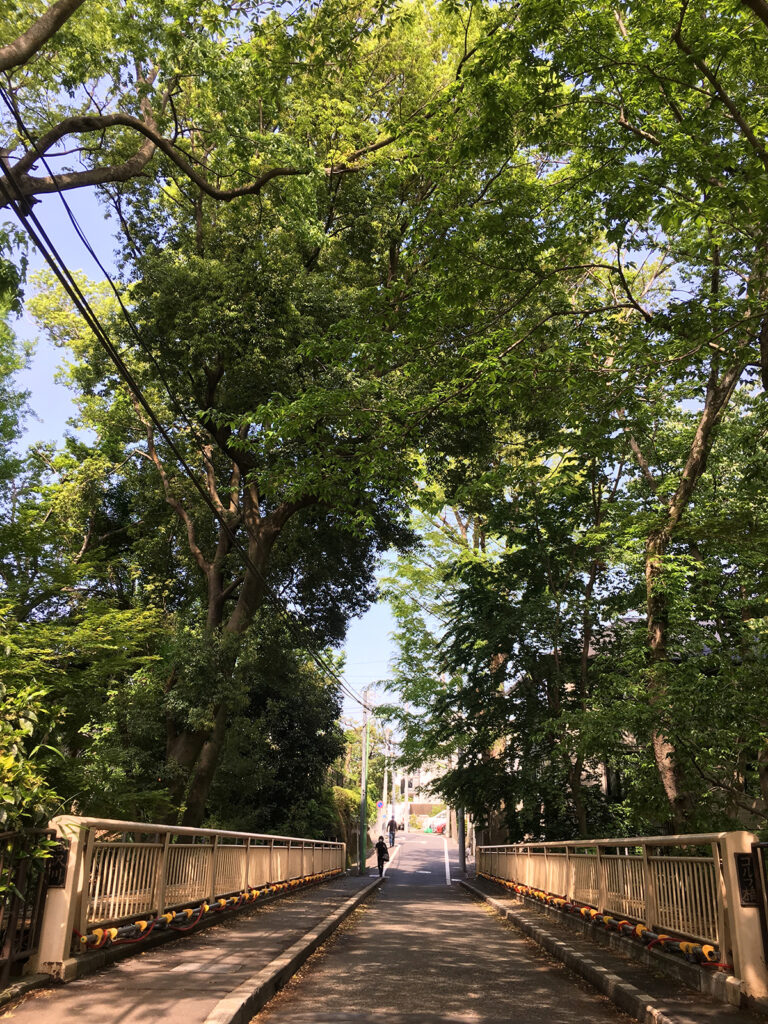
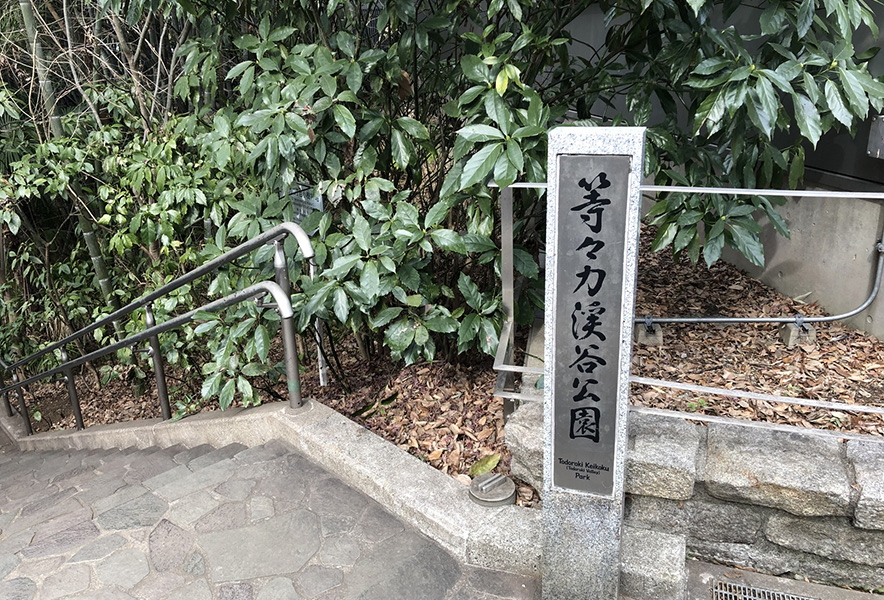
On the slopes of Todoroki Valley, strata dating back 2 million years have been exposed, and a group of yokoana tumuli (burial mounds) have also been excavated. This is a spot where visitors can learn about the history of Tokyo in terms of both nature and history. Visitors can feel the flow of the Tanizawa River, a tributary of the Tama River, and enjoy unexplored nature that one would not expect to find in the heart of the city.
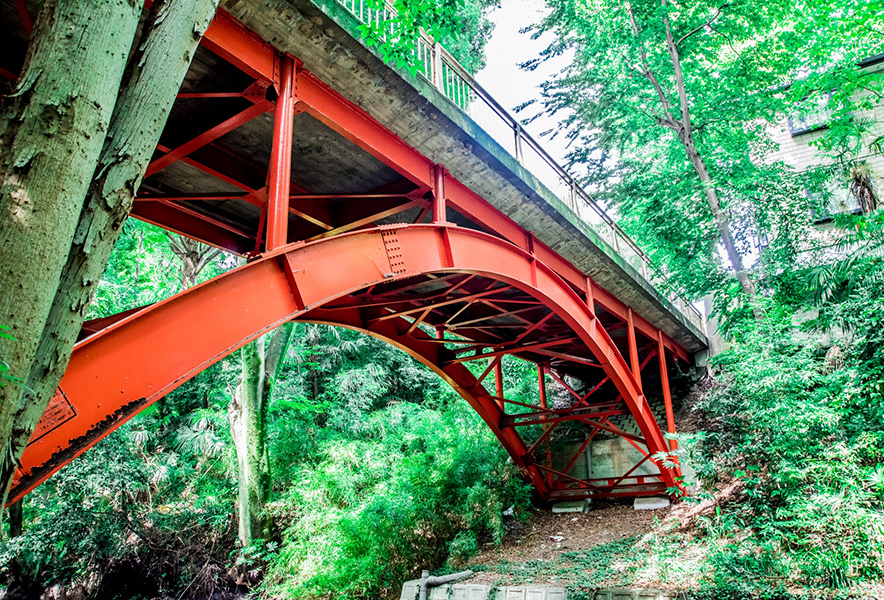
The red bridge called “Golf Bridge” catches the eye as you descend the stairs. The name comes from the fact that there was a vast golf course in the former Shimonoge and Todoroki villages at the beginning of the Showa period.
C.Todoroki Valley
On the slopes of Todoroki Valley, strata dating back 2 million years have been exposed, and a group of yokoana tumuli (burial mounds) have also been excavated. This is a spot where visitors can learn about the history of Tokyo in terms of both nature and history. Visitors can feel the flow of the Yazawa River, a tributary of the Tama River, and enjoy the unexplored nature that one would not expect to find in the heart of the city.
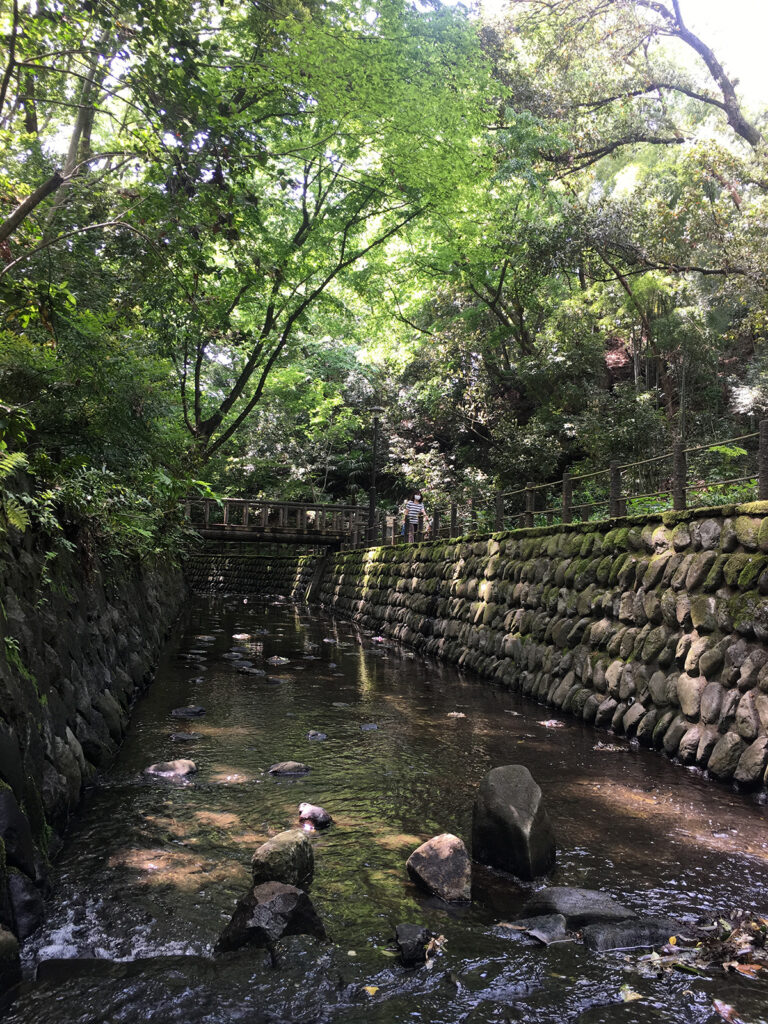
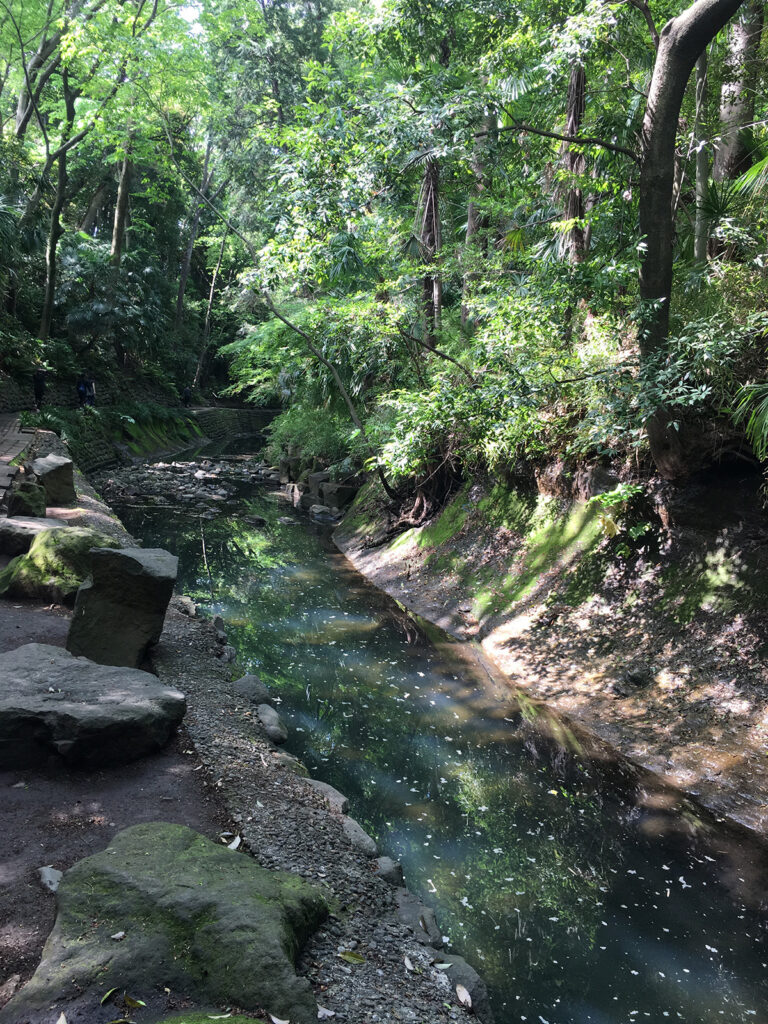
Todoroki Valley is a 1-km-long valley created by the erosion of the Tanizawa River. The strata that make up the Musashino Plateau can be seen up close, and fossils can be found in the exposed clay layers.
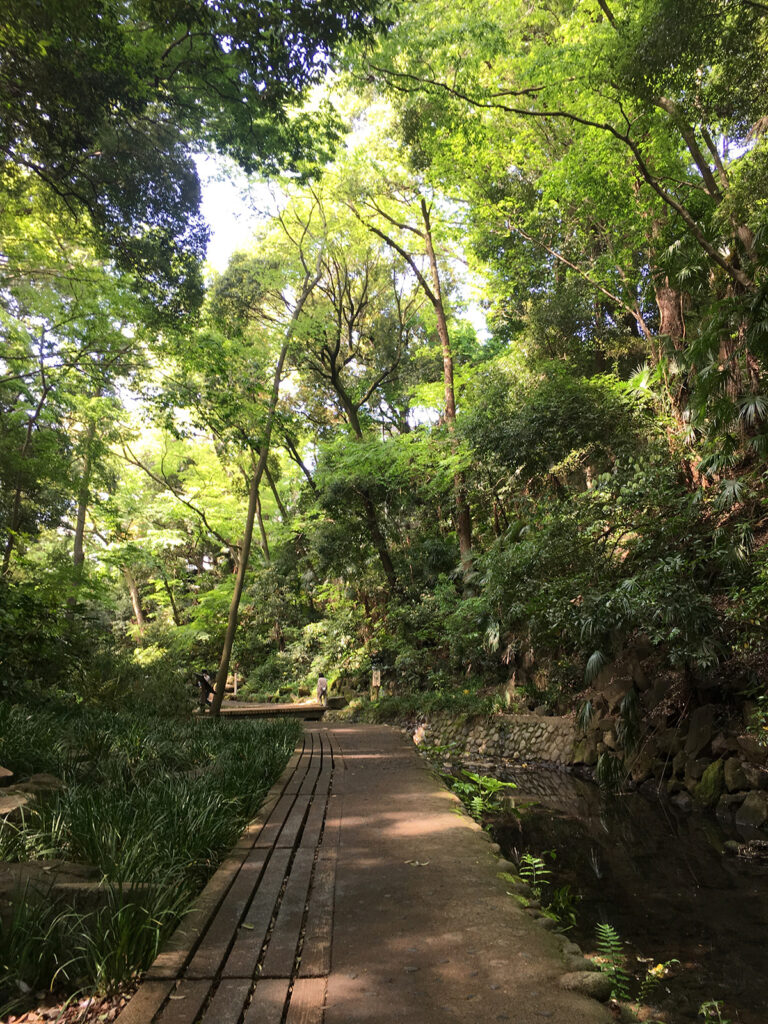
A luxurious stroll along the promenade, observing plants and geological formations, and enjoying the reflections of trees on the river surface.
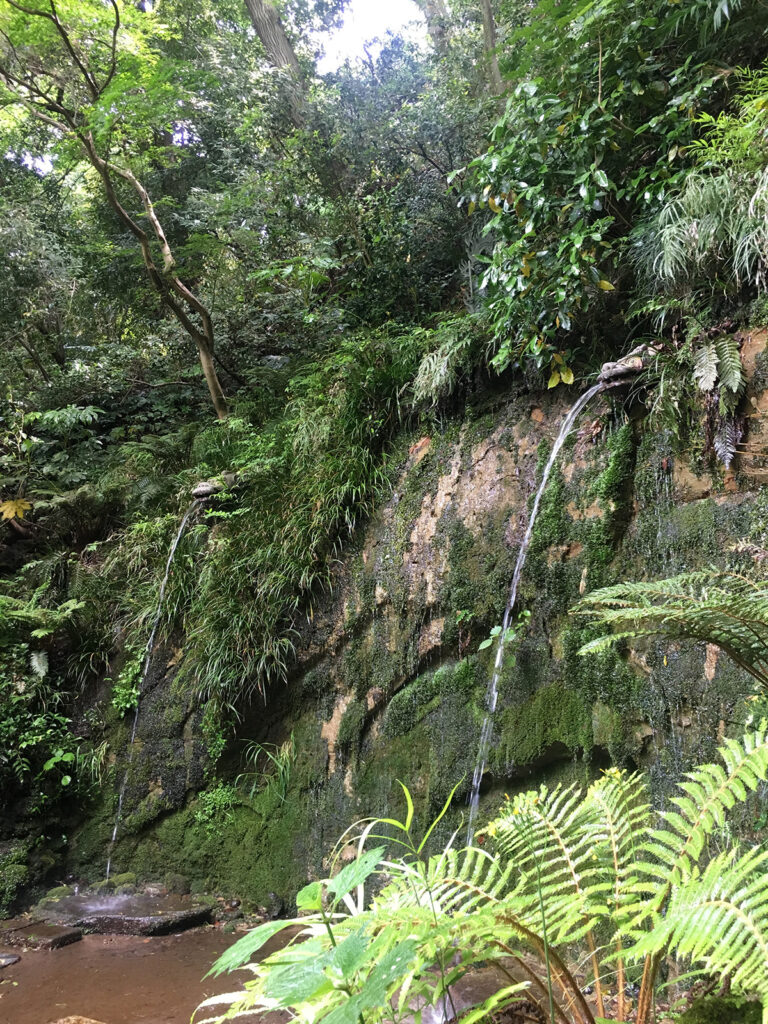
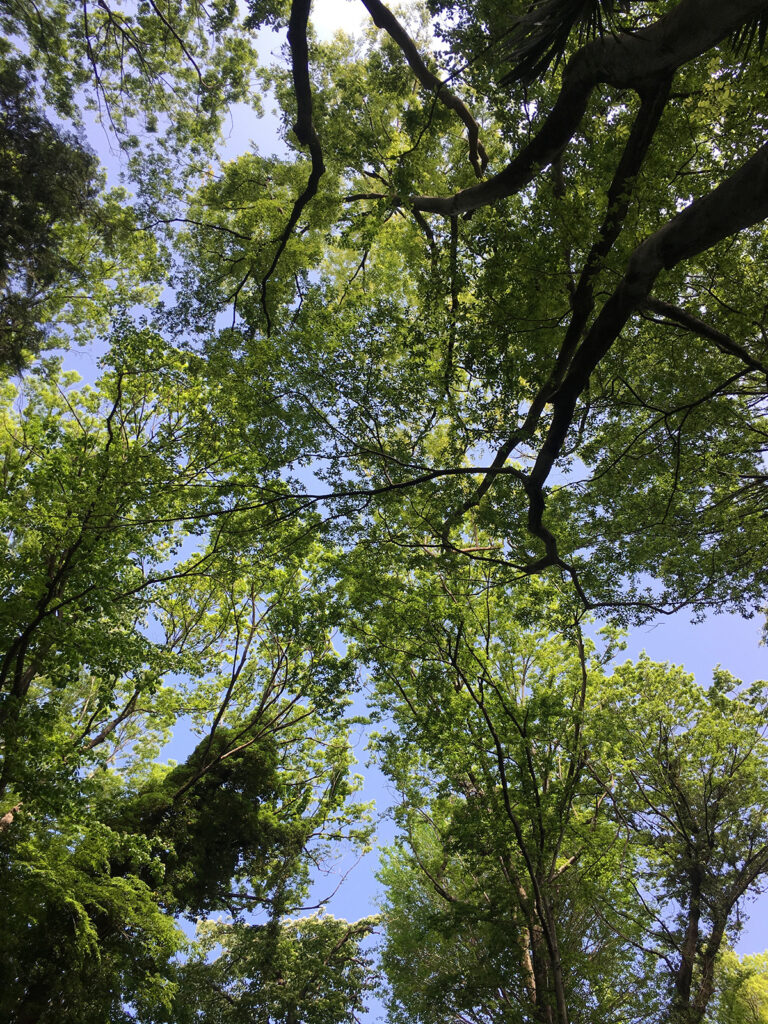
The area is full of attractions such as clear spring water and precious plants from prehistoric times.
D.Fudo Waterfall and Todoroki Fudo
Fudo no Taki, the waterfall of immovable water, is the source of the origin of Todoroki Fudo. It is one of the few places in Tokyo with a long history and tradition of ascetic practices in the area that was founded by the great priest Kokyo Daishi more than 800 years ago.
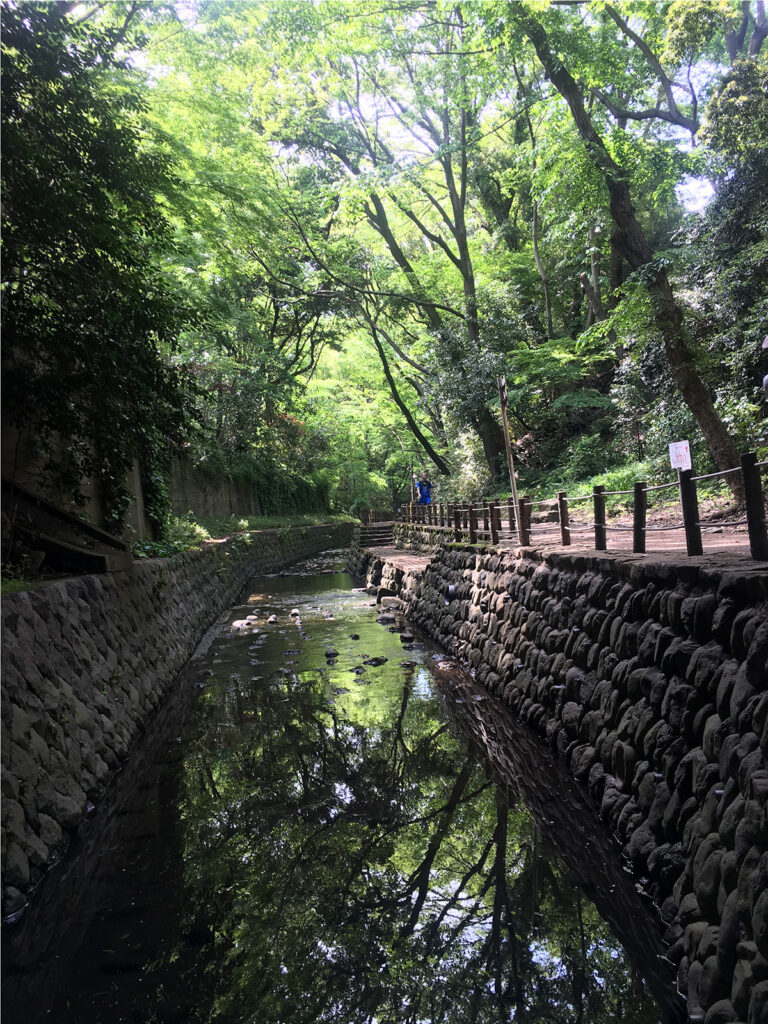
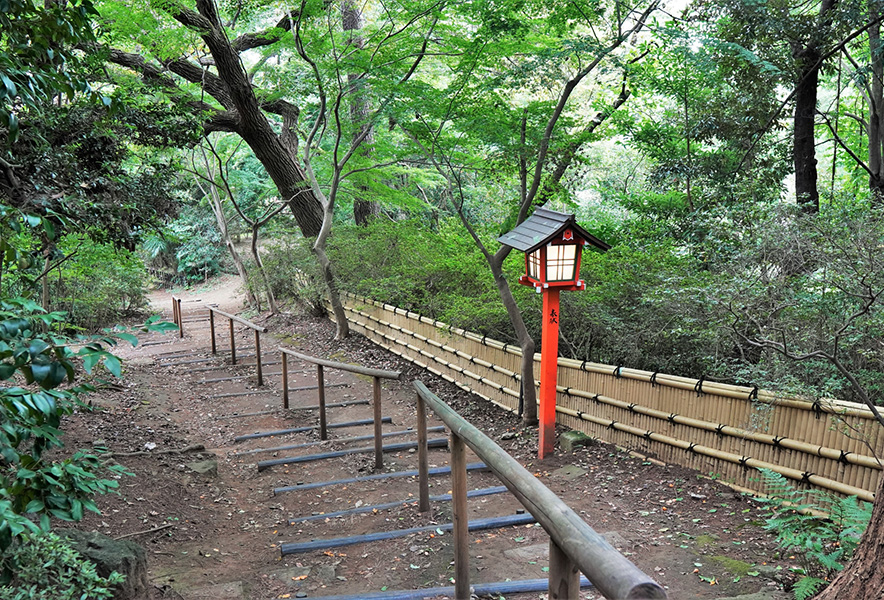
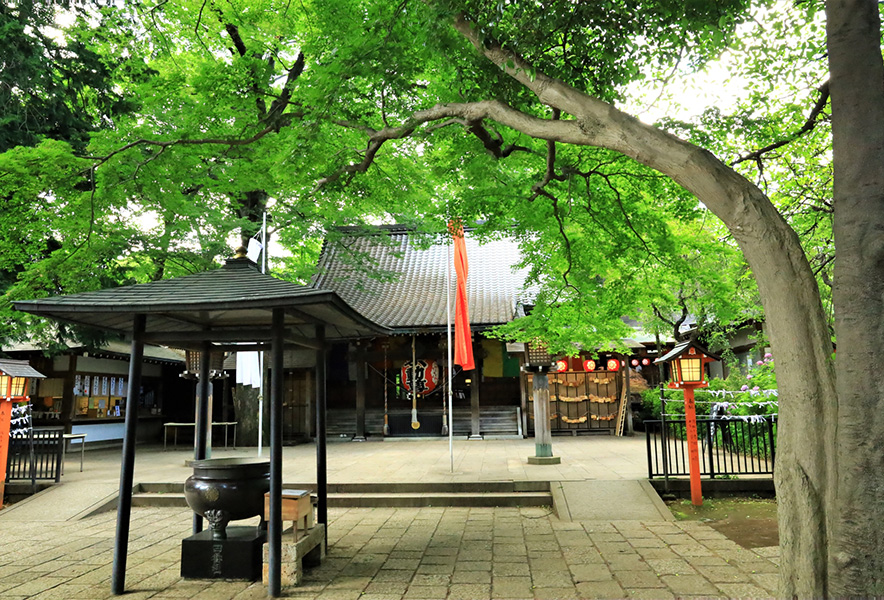
E.Japanese Garden and Shoin
A Japanese garden is located across the street from Todoroki Fudoson. There are two entrances, but the Kabukimon gate has an elegant atmosphere and is recommended for those who wish to experience the Japanese atmosphere.
Upon entering the gate, a bamboo grove continues on both sides, and the Shoin is located on a stone-paved stairway. The Japanese garden was built in 1973 and the shoin was built in 1961. The garden was designed by the famous gardener Tokiki Iida. The Japanese garden at Todoroki Gorge Park is very valuable because many of the gardens designed by Mr. Iida throughout Japan have been lost to development. The garden has stone lanterns and weeping cherry trees. The shoin building has also been preserved as it was in its original state. There is also a sunny lawn in the garden, from which the view is beautiful.
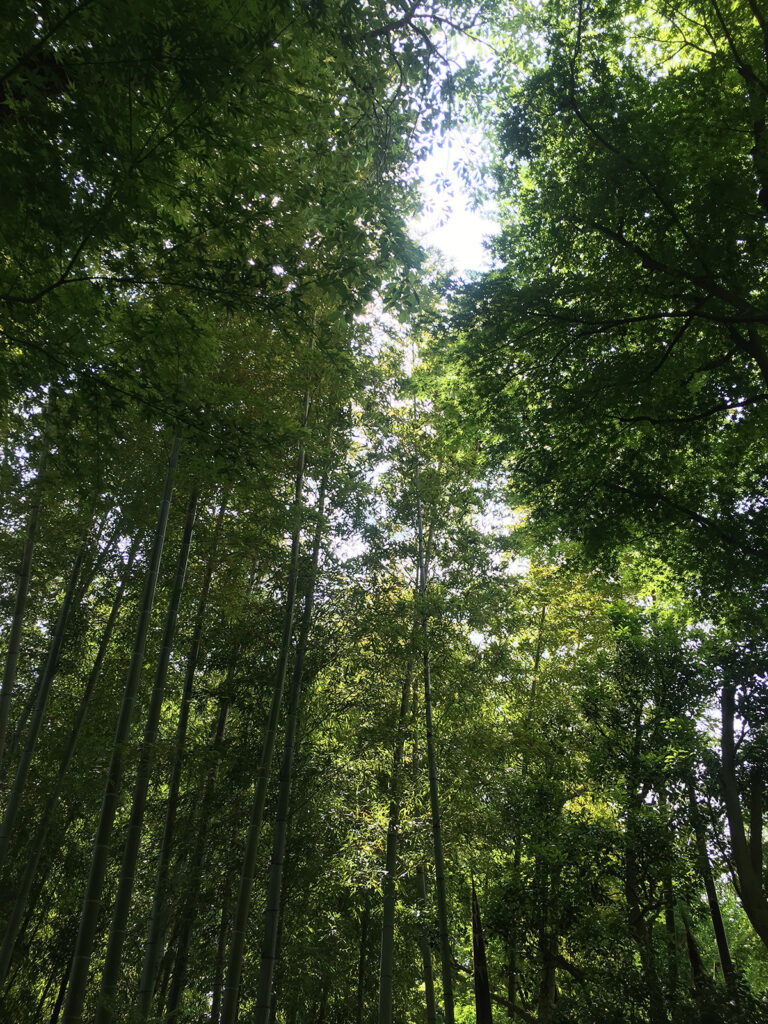
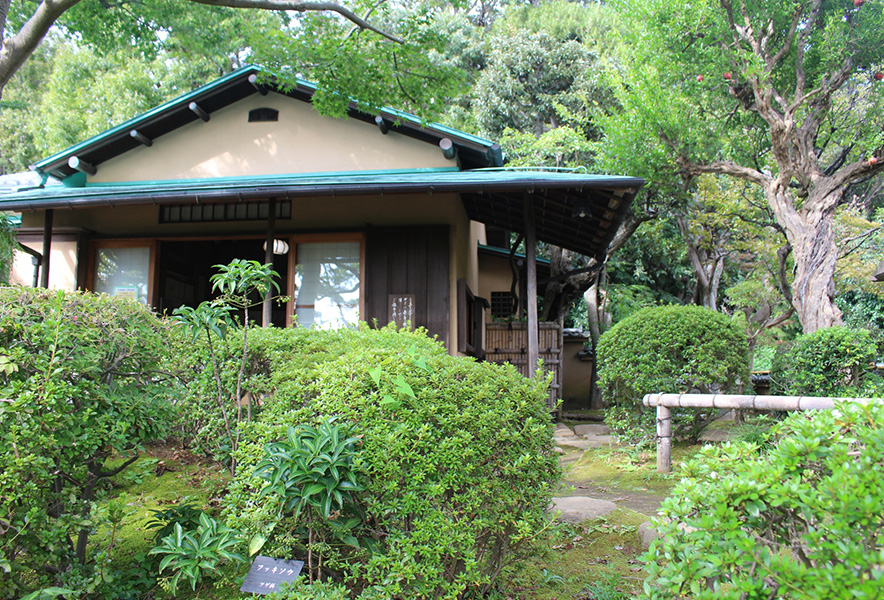
From the side of Todoroki Fudoson, wander down Meguro Street and Kanpachi to Kuhonbutsu.
F.Kuhombutsu Joshin-ji Temple
Located near Kuhonbutsu Station on the Tokyu Oimachi Line, Kuhombutsu Joshin-ji Temple is a temple of the Jodo sect of Buddhism.It was built in the early Edo period (1603-1868) by the high priest Kashiroku Shonin, and the site of Okusawa Castle was given to him by the fourth shogun, Tokugawa Ietsuna, in 1678. The temple was built with nine statues of Amida Buddha.
The hall is almost identical to the floor plan depicted in “Edo Meisho Zue” (published in 1836).
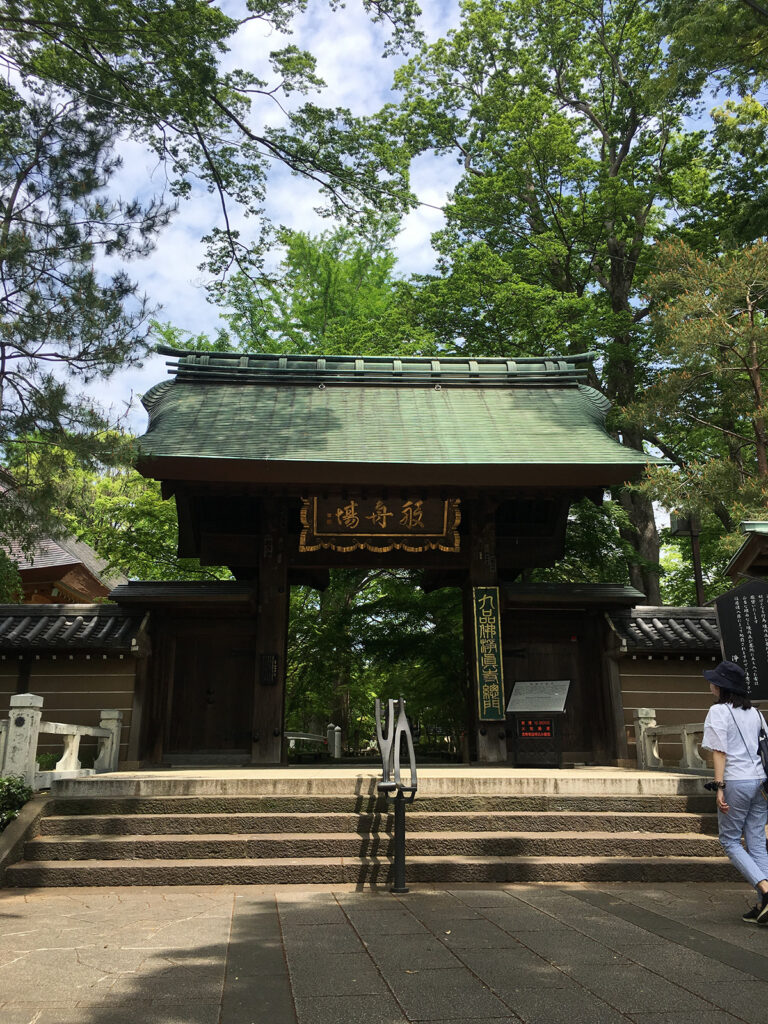
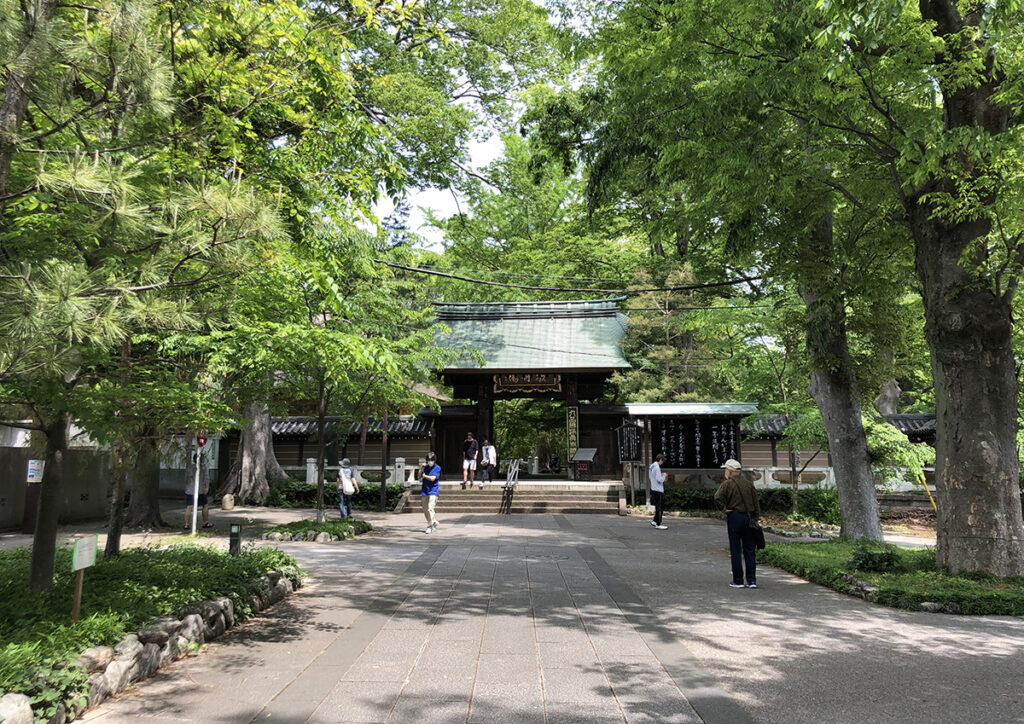
The first thing that can be seen is the “Main Gate. A large roof welcomes visitors to the temple. Currently, copper plates are incorporated into the roof of this gate, but before 1965, the roof was thatched.
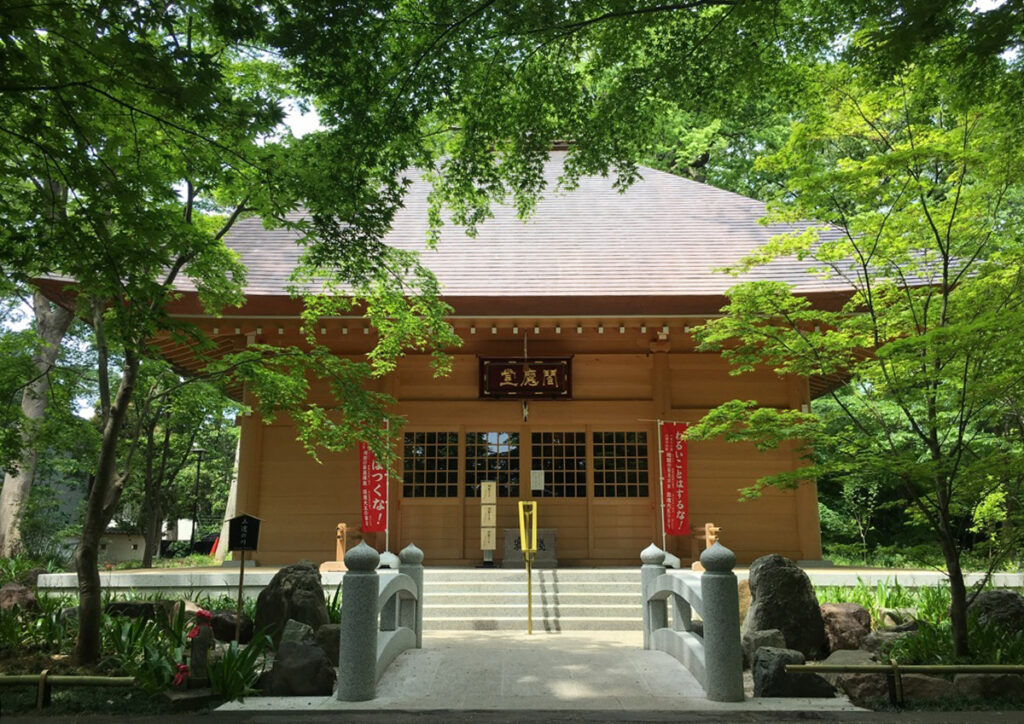
The “Enma Hall” is home to King Enma.When a person dies, he or she arrives at the Sanzu River on the seventh day. On the Sanzu River, there is an elderly couple named Kakei-Oh and Rui-Oba, who are under the command of the Great One.Instead of a fare across the Sanzu River, an old woman, Ruki-no-ha, strips the dead of their clothes and hangs them on a tree by the river. The degree to which the branches of the tree hang down determines the severity of the crime during life.
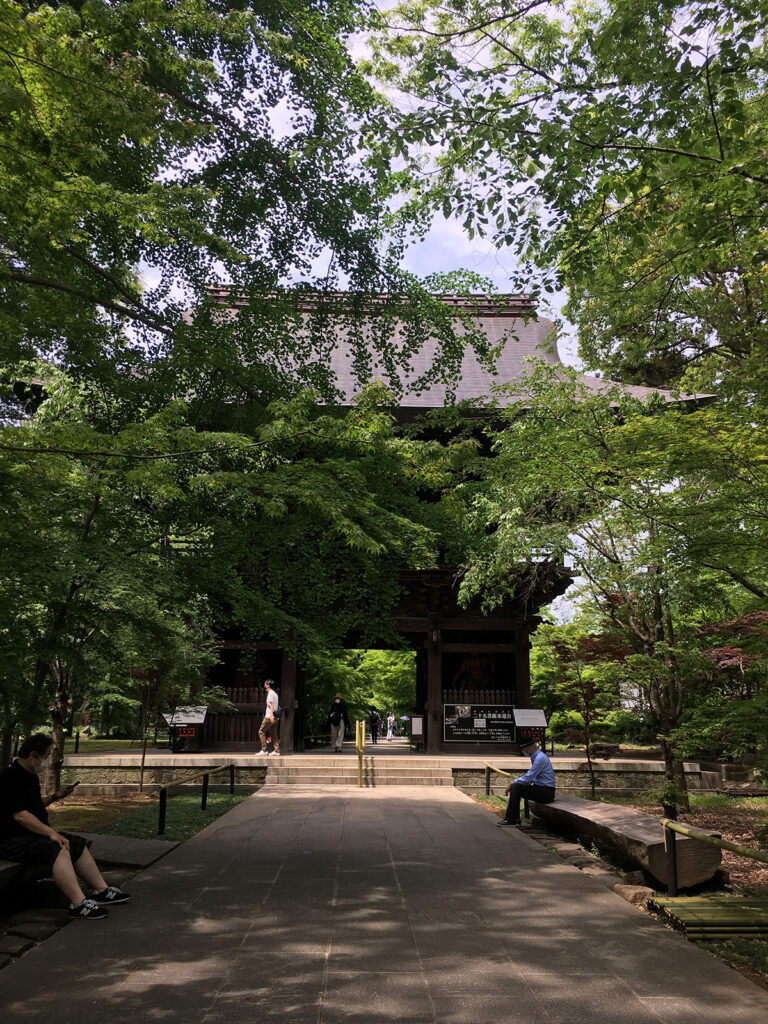
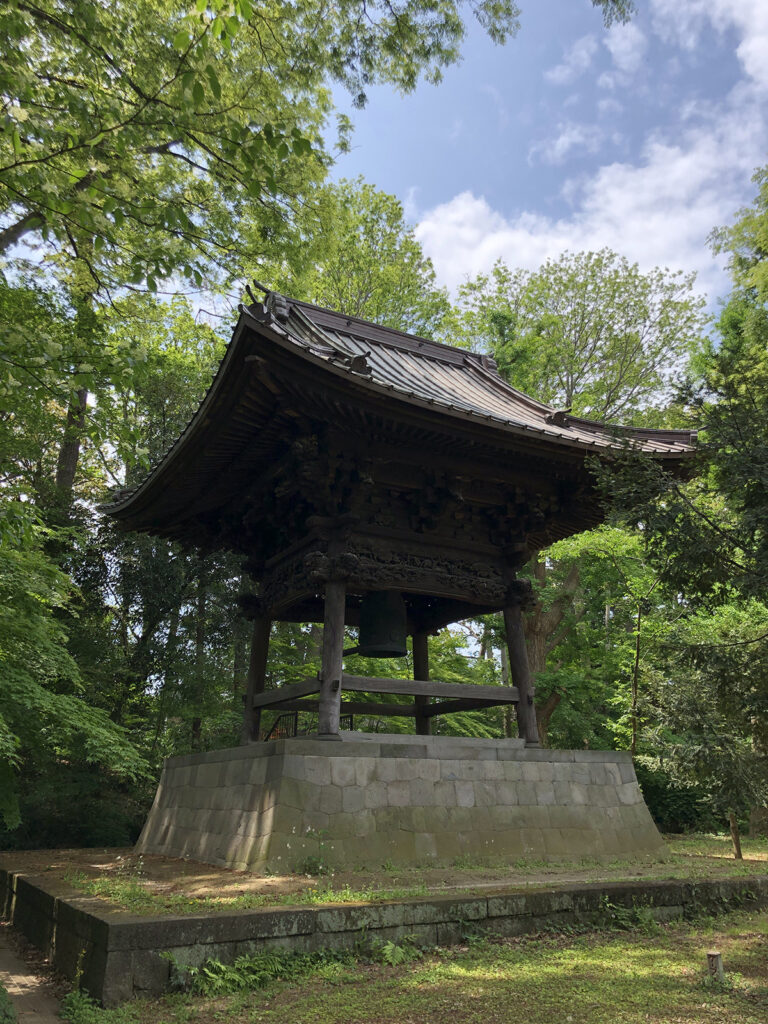
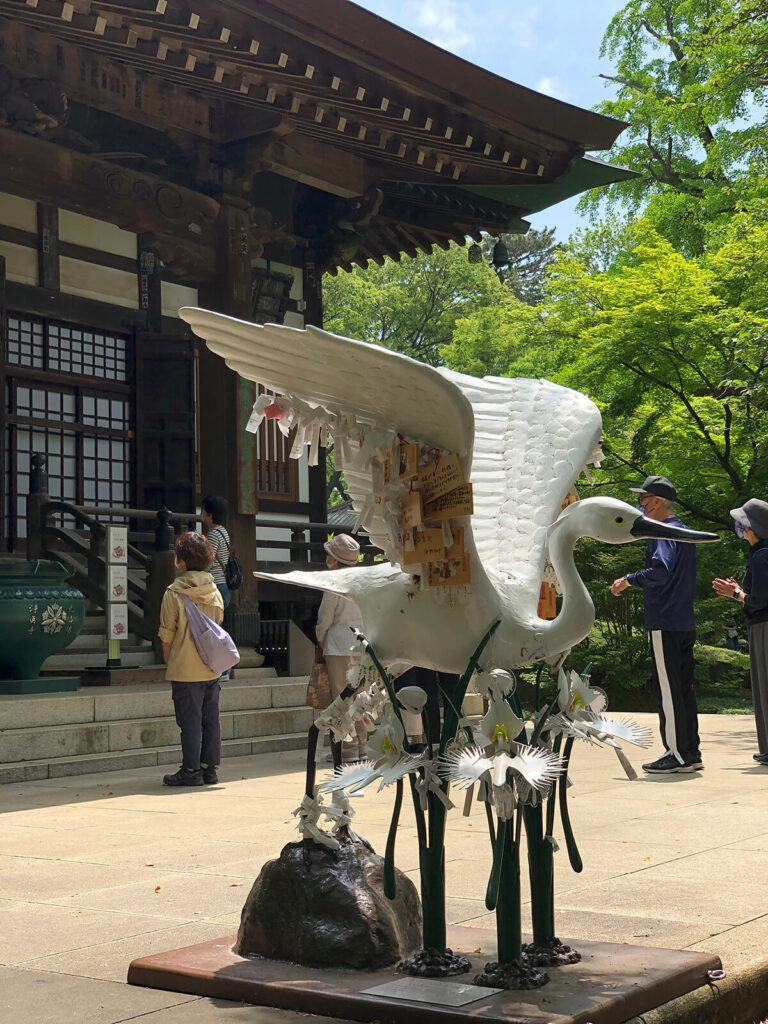
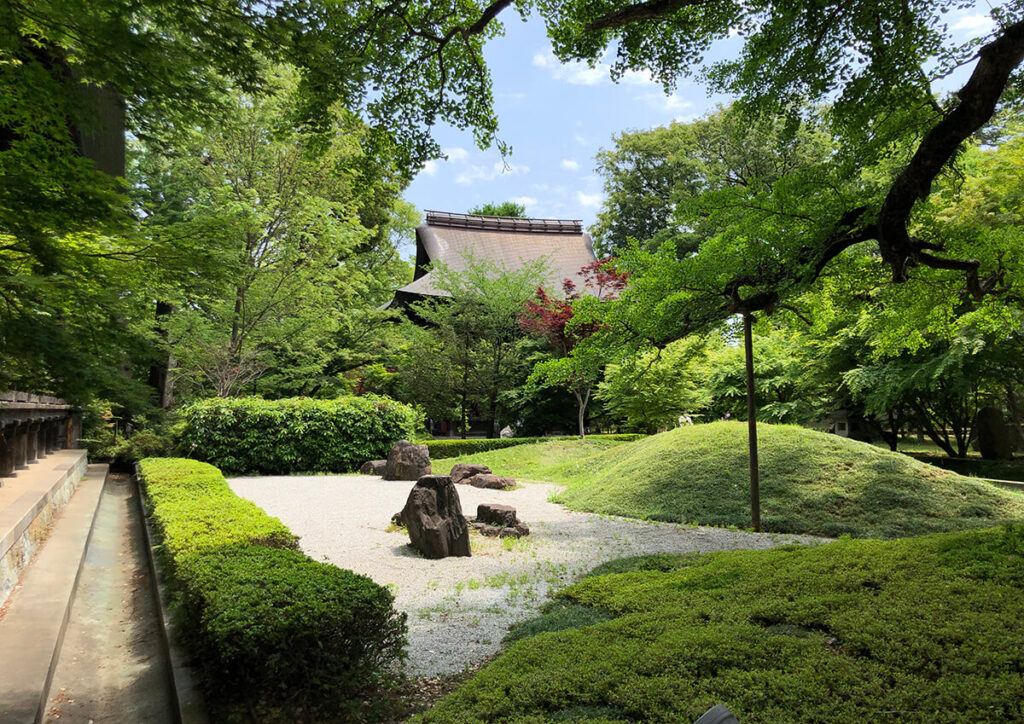
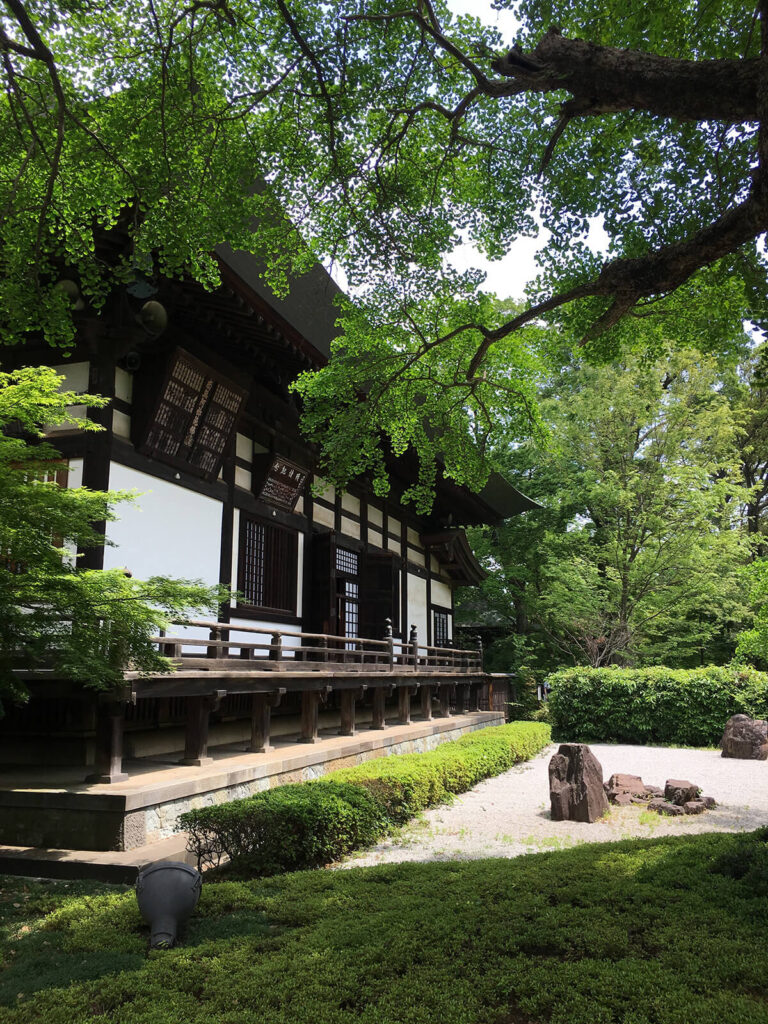
G.(Goal)Kuhonbutsu Station
The goal this time is Kuhonbutsu Station, two stops away from Todoroki Station on the Tokyu Oimachi Line, where we started.
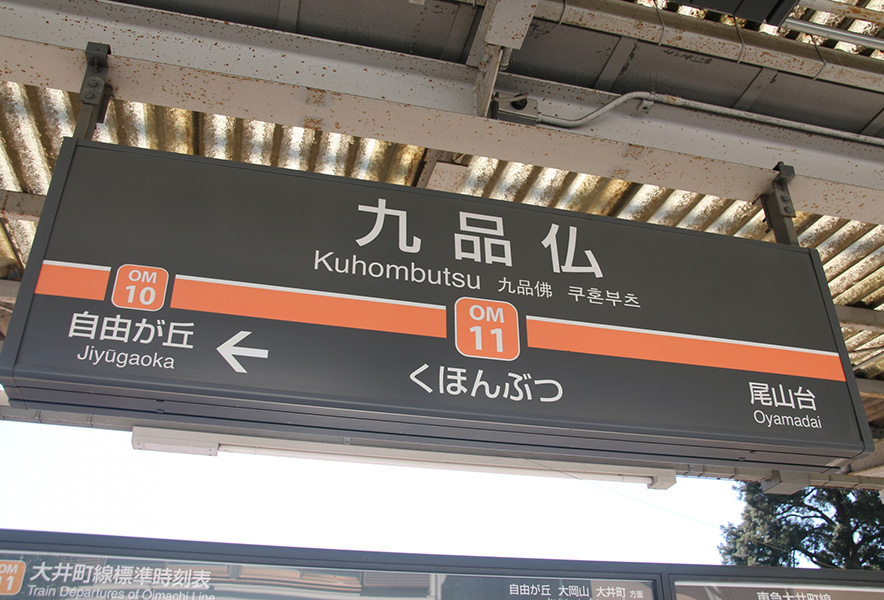
Review of the Todoroki route
A.(Start)Tokyu Oimachi Line Todoroki station
↓ 140m
B.Entrance to Todoroki valley Park
↓ 2m
C.Todoroki Valley
↓ 650m
D.Fudo Waterfall and Todoroki Fudo
↓ 3m
E.Japanese Garden and Shoin
↓ 1900m
F.Kuhombutsu Joshin-ji Temple
↓ 240m
G.(Goal) Kuhonbutsu Station
Total2.9km(Transportation within the facility is not included.)
Access to Todoroki
(Start)Tokyu Oimachi Line Todoroki station : 3-1 Todoroki, Setagaya-ku, Tokyo 158-0082
Parking around Todoroki Valley and Kuhonbutsu
Todoroki Valley and Kuhonbutsu Official Website
Todoroki Valley : https://www.city.setagaya.lg.jp/mokuji/kusei/012/015/001/010/d00004247.html
Kuhombutsu Joshin-ji Temple : https://kuhombutsu.jp/
